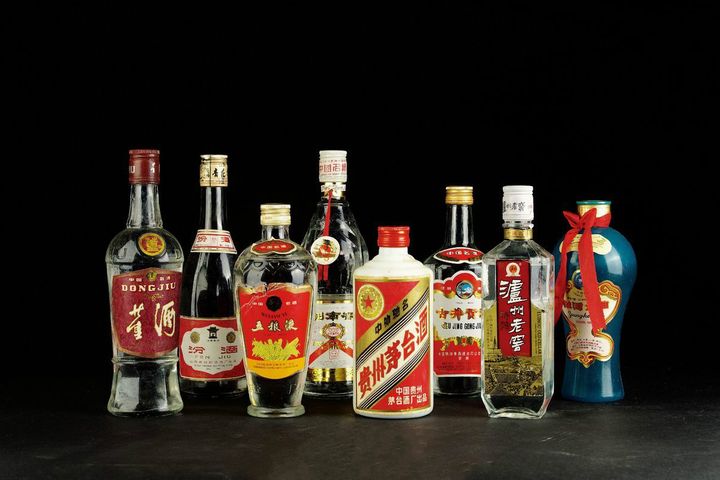 Chinese Liquor Makers Will Struggle to Sell Baijiu Abroad Despite Global Campaigns, Market Insiders Say
Chinese Liquor Makers Will Struggle to Sell Baijiu Abroad Despite Global Campaigns, Market Insiders Say(Yicai Global) Sept. 27 -- Some of the biggest makers of Chinese distiller liquor baijiu are renewing efforts to promote the spirit in foreign markets.
Wuliangye Yibin Co. [SHE:000858], Luzhou Laojiao Co. [SHE:000568] and Shanxi Xinghuacun Fen Wine Factory Co. [SHA:600809] have all kicked off globalization plans in recent months, a Yicai Global reporter found.
Wuliangye Yibin and Luzhou Laojia set up branches in Europe and the US, respectively, while Xinghuacun Fen Wine is poised to enter Russia.
The firms might appear to be making headway in their plans to go global, baijiu industry analyst Cai Xuefei told Yicai Global, but the liquor is still not a mainstream international spirit, mostly due to differences in product standards, consumer preferences and cultural barriers.
Their efforts are mostly aimed at building their brand, it doesn't mean there is substantial demand for Chinese liquor in foreign markets, he added.
Kweichow Moutai Co. [SHA:600519] is the only firm to successfully introduce baijiu overseas, Cai said. The other brands are just following its lead, they don't really care how many shipments they make abroad. For example, Xinghuacun Fen Wine has opened a factory in Russia, but there's been no noticeable change to its sales in the country.
There is a growing tendency in the global spirit industry toward lower alcohol content and fruity aromas, said Xiao Zhuqing, general manager of Shandong Wenhewang Wine Group. This is clearly different from the development trend in China.
On the other hand, it takes a very long time to change people's drinking habits. Most baijiu producers are publicly traded companies and are willing to spend 10 or 20 years on making their products more accepted by consumers, Xiao suggested.
It seems that traditional Chinese liquor is not suitable for foreign markets, their aroma and flavor do not appeal to people in the west, Buduan Harvard, chairman of the Belgian International Wine Contest's organizing committee, once told Yicai Global. Their high alcohol content is unacceptable by western standards, and their packaging and branding would also need to be tailored to suit foreign tastes.
There could be a market for baijiu in Russia, Eastern Europe and Latin America, where sizable Chinese populations can be found, Cai said, but it is very unlikely that any Chinese liquor makers could claim a significant share of the global market in the near future.
Baijiu must be adapted to local consumers' preferences before it can infiltrate a foreign market, he added.
Wuliangye Yibin recently opened a branch in Dusseldorf, Germany. Luzhou Laojiao set up a joint venture in the US through a subsidiary. The new company will develop and sell a new type of baijiu localized for the American market.